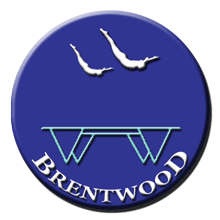NLP & trampolining
Written by Alex Sinclair E.H.P (Dip) N.L.P (MA) Trainer
It has been long thought that part of the athlete’s preparation to excellence was not only the physical and skilful sides of their art, BUT in the mental aspects of the discipline also.
NLP in the domain of sporting excellence can play a role in the state-management of the athlete and coach.
Some of the best sportspeople have an insatiable attitude to understand how they mentally and physically hold themselves back, and they have the commitment to shifting their thinking styles of defining themselves as a true ‘Gymnast, footballer, sprinter’, etc. they effectively WALK THE TALK and the arena they move in knows it.
- N - "Neuro" acknowledges the fundamental idea that all behaviour stems from our neurological filters, i.e. our senses.
- L - "Linguistic" relates to how we process and understand language in order for our thought processes to be communicated.
- P - "Psychology" describes the connection between the sensory-based information and turning it into the subjective experience.
In short NLP can be seen as a mixture of art and science. It's an art because everyone brings their own unique personality and style to what they do. Science because there is a method and process to discovering the patterns used by outstanding individuals in any field to achieve outstanding results.
It was developed after modelling three behavioural specialists (Satir, Perls, Erickson) and has its roots in Psychology and Behavioural science, and people’s subjective ability to develop understanding and learning.
Neuro linguistic training began way back in the 1930s under the tutelage of Alfred Korzybski. In his landmark work ‘Science and Sanity’(1933) Korzybski established the distinction between the map and the territory of human understanding and how what we perceive in the world through our senses (map) is filtered and uniquely interpreted by each individual (territory).
Through the use of the core learnable patterns of NLP people can develop an insight into how other people develop personal limitations in all areas of their lives.
When people become confused or lack the understanding of how they limit themselves, the implementation and use of leverage systems through NLP can assist the coach to give the individual the skills to develop a greater degree of flexibility in their behaviour or thoughts.
In summary, NLP is about how we humans can train our brains in order to become more successful at things we like to do. Taking trampolining or gymnastics, NLP can be used in conjunction with the physical training with the aim of helping the athletes 'train' their brain to perform the routines in their heads to the level required to win that competition or gold medal.
© Alex Sinclair
 ®
®









